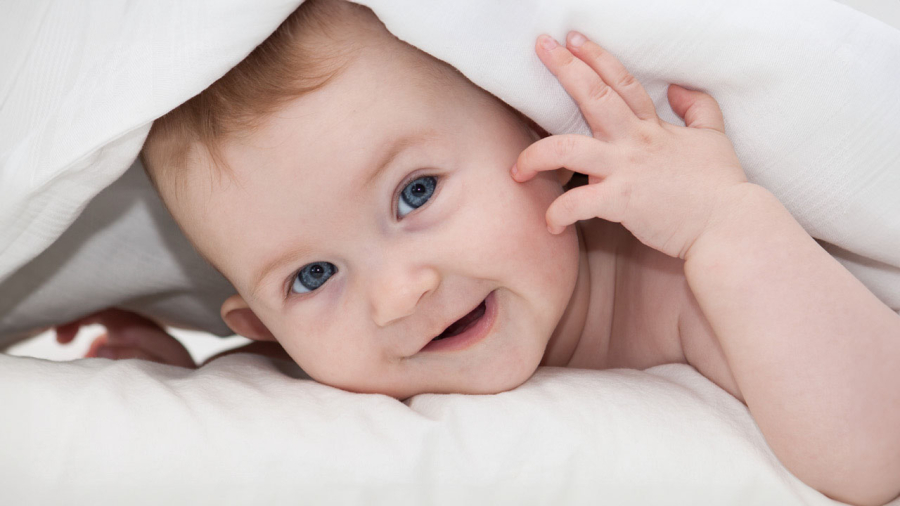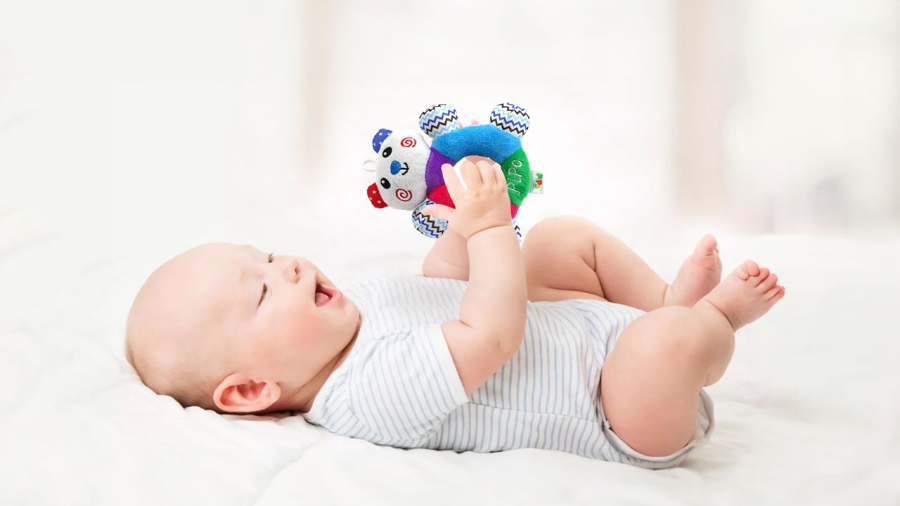Small babies can show signs of intelligence very early. Please observe if your child has any of the following signs. If so, congratulations on your smart unborn child:
1. Early attainment of developmental milestones
If your baby reaches developmental milestones early, such as rolling over, sitting up, crawling, walking or talking early, then that is also a sign of intelligence. Therefore, parents need to pay special attention to create the best conditions for the child’s development. So when the child shows signs, you should create conditions for the child to develop further. For example, if you see your child interested in something, actively talk to them. If you see them rolling over, create conditions for them to move. Don’t force your child, but observe to recognize early signals from your child and provide appropriate care.

2. Early smiling and smiling a lot
To assess a child’s intellectual and emotional development… we cannot ignore smiles. Babies who smile early and smile a lot are very intelligent, especially those who have high emotional intelligence, which is highly valued in today’s society. Babies who smile early are good at communication and have a place in society.
3. Sleep less
The belief that well-behaved children sleep a lot is outdated. Intelligent children who sleep moderately without fussing are considered good. However, if the child is healthy but cries and becomes uncomfortable at night, it is normal.

4. Children always like novelty
Children who like novelty and early exploration are considered intelligent. A survey with babies from 9 to 12 months old showed that when given a choice between familiar and new toys, children tend to choose the new ones. Intelligent children always need new information, don’t say that children quickly get bored. Because children need to explore and have a desire to explore as much as possible, it shows that they are intelligent and absorb more information about the world. The need for learning arises from infancy and is one of the important factors that contribute to intelligence in the future. Therefore, parents should create opportunities for their children to explore more.

5. Agile and energetic
Is your child always full of energy? Do you feel tired playing with them? That’s young children. If a child lacks energy and sits quietly all the time, it is not good. A smart and healthy baby will always be curious about the world, lively and energetic. From 9 months to 2 years old, children show these characteristics. In addition, they also observe well, like to differentiate and explain the relationship between objects around them. Therefore, they often ask difficult questions for adults.
6. Good memory and concentration
If a child remembers familiar people after 1 or 2 meetings, remembers a picture their mother showed them, remembers where things are stored… it shows that they have a good memory. Children who can concentrate on observing or listening are usually intelligent. If a baby cries and demands when their mother takes an object they are holding from them, starting from 5 to 6 months and until 10-11 months, it even includes flipping blankets to find their mother’s hidden items. It shows that the child has a very good memory.
Of course, as children grow up, they will be influenced by the environment, education, nutrition, health, etc. However, if you see your child showing the above signs, please recognize them in time and nurture them properly.



































